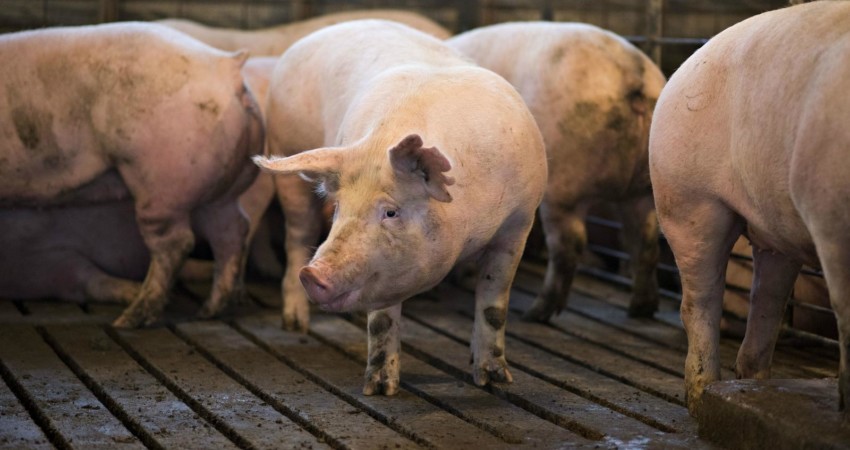

Most pigs are kept in poor hygienic and stressful conditions that lead to slow development, low weight gain and diseases. Pig feeding and general management is a real challenge to most pig farmers in the country.The way pigs are reared in most farms is responsible for poor growth, low weight gain and even low general productivity.
The cost and quality of feeds are two other problems that confront pig farmers. Unless a pig is well fed and taken care of, it cannot attain the desired weight to enable the farmer to fetch a good price at the time of sale. This piece focuses on pig management. You can also read pig feed requirements at each stage of growth and and how farmers can cut down the cost of feeding.
Clean and spacious housing important Like any other animals, pigs also require good management. Unfortunately many farmers keep pigs in very unhygienic conditions. That reduces their health condition and productivity. Indeed, the main reason for low productivity is not necessarily due to poor feeding but hygiene and management.There is a general belief among farmers that pigs prefer a dirty environment and can eat anything. This is why many pigs, especially those on free range are often found in dump sites or fed on food leftovers.
Farmers in cold areas should ensure that pigs are kept in well constructed sheds that are not too cold or too hot. The pigs’ sty should be spacious enough to allow for free movement so that when it is hot, each of the animals can lie down alone and also to cuddle together during the cold spells in order to share their body warmth. The pigpen should have a separate area where they can defecate (make their droppings).The shed should also have a feeding and water trough or water nipples for them to take water at all times whenever they need it.
In terms of animal welfare and even in organic farming standards, pigs should be allowed adequate space to move so that they can get adequate exercise and also express their normal behavior.Farmers are advised to leave an open area beside the sheds where pigs can move freely. This reduces stress in the animals while giving them an opportunity to play and take in fresh air.
Poor hygiene causes diseases and parasites Dirty sheds are breeding grounds for disease-causing pathogens and even parasites.Some of the diseases likely to affect pigs in dirty sheds are given below:
Scouring (diarrhoea): Diarrhoea in pigs is one of the most common problems that farmers face. The main cause of diarrhoea is lack of hygiene in the pig sheds. The most affected by this problem are young pigs.
Mange (sarcoptes): This is the most common parasite in pigs. Pigs infested by the parasite spend most of their time scratching and rubbing against the walls of their sheds. The parasite causes enormous losses to farmers because the affected pigs spend a lot of time scratching, which depletes their energy. Research shows that sarcoptes can result in a loss of 5% to 10% in feed conversion and weight gain. The parasites are transferred from one pig to another by body contact. Farmers who notice their pigs scratching and rubbing themselves should immediately consult a veterinarian for treatment.
Worms: Pigs on free range in many other African countries are allowed to scavenge for food in garbage dumps, where they feed on all sorts of waste including human waste and discarded food. These pigs get infested with worms such as Taenia solium and Trichinella spiralis these are dangerous worms which can cause epilepsy in people who eat pork from such pigs.
 Contact Jaguza Support
Contact Jaguza Support